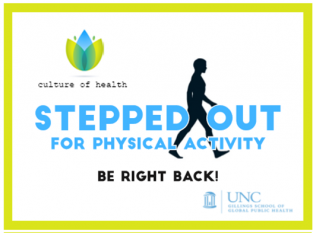Related Posts
Weekend reading illuminates
Over the weekend, I read two seemingly disparate articles. One, from the Sunday New York Times, focuses on the toxic work world. The other, in the Korn Ferry Institute’s Briefings magazine, posits that transformational leadership requires new behaviors and new ways of achieving work/life balance, the Sisyphean quest that sometimes seems truly quixotic.
Preventing a toxic work world also requires these new kinds of leadership skills. One thing is becoming clearer: just spending more hours on the work treadmill, trying to speed up to catch up, isn’t making us smarter or better. Everywhere I go, people are talking about their frustrations as they try to do more, not just with fewer organizational resources but also with diminishing personal resources. I’ve been known to decry my personal inability to function on less than four hours’ sleep. We often talk about email as one of the culprits, but perhaps email is merely a symptom. It is much worse for staff members, in this and other organizations, who are underpaid for their efforts and may lack the autonomy and flexibility offered by faculty positions.
On one hand, Kevin Cashman, author of the Briefings article, “Pauses Really Do Refresh,” says leaders need time-outs and ways of thinking and behaving differently. On the other, Anne-Marie Slaughter, author of “A Toxic Work World,” in the Times, writes about the need for workplaces to change such that they are compatible with the needs of employees to care for themselves, their family members and their communities. Slaughter worries that we’re reaching a time when “[t]he people who can compete and succeed in this culture are an ever-narrower slice of American society: largely young people who are healthy, and wealthy enough not to have to care for family members.”
From what I have seen of the lives of a niece and nephew, both of whom write for their livings, even that isn’t correct. They’re under such pressure to produce, non-stop, for so little money and security, that they have no more discretionary time than does anyone else. Being young and being single are no longer promissory notes for having discretionary time.
Change in our individual workplaces and in our broader politics also depends on culture change: fundamental shifts in the way we think, talk and confer prestige. If we really valued care, we would not regard time out for caregiving — for your children, parents, spouse, sibling or any other member of your extended or constructed family — as a black hole on a résumé. We would see it as engaging in a socially, personally and professionally valuable activity. We would see men who lean out for care as role models just as much as women who lean in for work. We would think managing kids matters as much as managing money. —Anne-Marie Slaughter, in “A Toxic Work World”
“For many Americans, life has become all competition all the time,” Slaughter says. “Workers across the socioeconomic spectrum, from hotel housekeepers to surgeons, [and, yes, deans] have stories about toiling 12- to 16-hour days (often without overtime pay) and experiencing anxiety attacks and exhaustion. Public health experts have begun talking about stress as an epidemic.”
Finding solutions
Build “cultures of health”
 At least part of the answer may come in building cultures of health that acknowledge the complexity of all our lives. Sometimes, the demands of one part of life, say, the life of the family, call for a relief valve. To retain our best employees, we must allow them to ease up on the demands of work on occasion, lest they conclude, as have far too many women, that quality of work and quality at home are no longer compatible. We must attend to employees’ mental and physical health as well as their quantified productivity. I’m happy when I go by an office at the School where someone has posted their personal “culture of health” card that says “Stepped out for physical activity.” It’s one small thing, but it recognizes the need for employees to do something other than sit (or even stand) at their desks.
At least part of the answer may come in building cultures of health that acknowledge the complexity of all our lives. Sometimes, the demands of one part of life, say, the life of the family, call for a relief valve. To retain our best employees, we must allow them to ease up on the demands of work on occasion, lest they conclude, as have far too many women, that quality of work and quality at home are no longer compatible. We must attend to employees’ mental and physical health as well as their quantified productivity. I’m happy when I go by an office at the School where someone has posted their personal “culture of health” card that says “Stepped out for physical activity.” It’s one small thing, but it recognizes the need for employees to do something other than sit (or even stand) at their desks.
Simplify processes
There are many tedious processes in state jobs that add work complexity without adding value. What we have is what we have to deal with, so I’m going to be asking people to look for ways to simplify processes so we can work smarter and happier.
Think integratively
Achieving balance also may require that leaders develop new ways of thinking and acting, and, indeed, new kinds of intelligence. Cashman, the author of the article about pauses, wrote:
A colleague at Korn Ferry, Andrew Pek, an author and thought leader in innovation, postulates that a new type of acumen is required nowadays; he calls it ‘integrative intelligence,’ and it is precisely the ‘connecting the dots, as well as creating new dots’ skill required in today’s marketplace. Becoming adept at the language of integrative intelligence—compelling questions—is one of the most underdeveloped competencies in leaders today. [Read more.]
For several years now, we’ve been referring to people at the Gillings School who can “connect the dots” as among our most highly valued employees. They may or may not have doctoral degrees, but they have emotional intelligence—and something else, too. It’s an ability to scan the organization and the horizon, to look both wide and deep, broad and focused, to apply emotional and cultural intelligence but to refine that learning with data-driven observations. If only I could, I’d pay fortunes to support people such as these—because they make everything they touch better. We all could use a bit more integrative intelligence in our lives.
Happy Monday.
Barbara
Comments
Thank you so much for your comment. Here's a link to our School's Culture of Health page, FYI: http://sph.unc.edu/nciph/culture-of-health-2/
Bearface Instructional Technologies, LLC
We really like your solution of having a culture of health. We also agree with the approach to wellness that one must pay attention to their mental and physical wellness in order to have and be a truly productive and happy employee.



Barbara Rimer